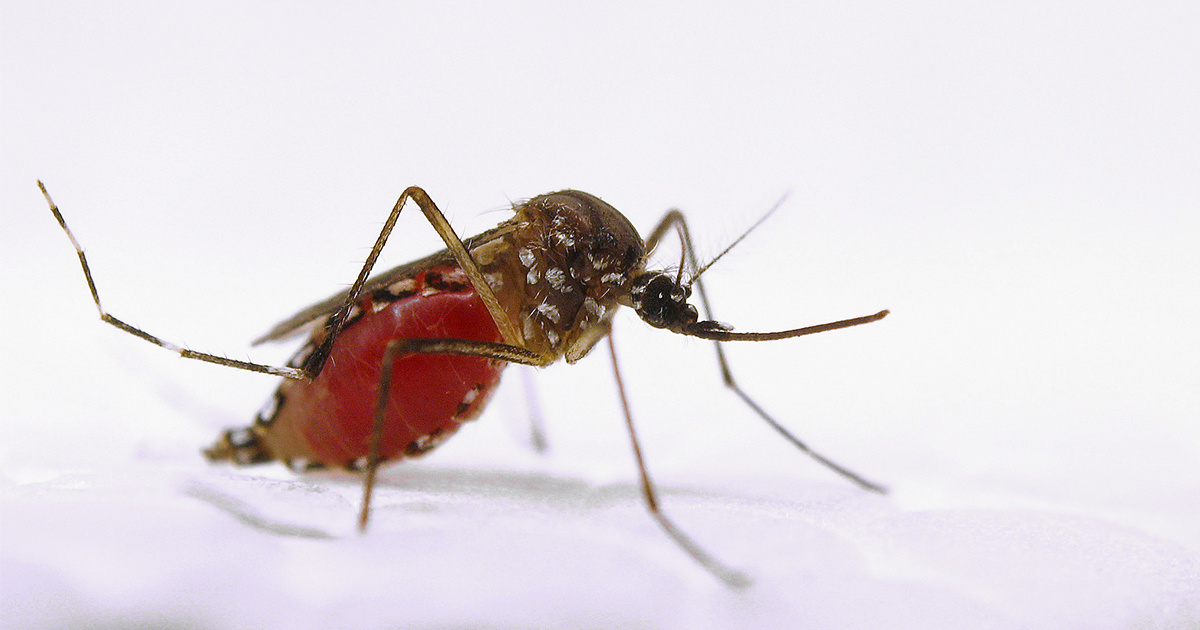

A female Aedes aegypti mosquito resting after a blood meal. USDA-ARS
You can love it or hate it, but coconut oil certainly has many uses. Now, federal researchers have added one more function of the tropical favorite to the list.
Turns out, coconut oil fatty acids have strong repellency and long-lasting effectiveness against bloodsuckers and disease-carriers such as mosquitoes, ticks, biting flies and bed bugs, according to a new U.S. Department of Agriculture (USDA) study published in Scientific Reports.
In some cases, the all-natural compounds worked even better than DEET, the synthetic active ingredient used in many widely used repellent products.
It’s important to note that “coconut oil itself is not a repellent,” lead researcher and entomologist Junwei Zhu emphasized in a press release. Rather, it’s the coconut oil-derived free fatty acid mixture—lauric acid, capric acid and caprylic acid as well as their corresponding methyl esters—that showed strong repellency against blood-sucking insects, the researchers found.
When the researchers encapsulated these coconut fatty acids into a starch-based formula, field trials showed it could protect cattle against stable flies for up to 96 hours or 4 days. To compare, DEET was only 50 percent effective against stable flies, while the coconut oil compound was more than 95 percent effective.
As for bed bugs and ticks, DEET lost its effectiveness after about three days, while the coconut oil compound lasted for about two weeks, the study showed.
Coconut oil fatty acids also provided more than 90 percent repellency against mosquitoes—including Aedes aegypti, the primary species responsible for spreading Zika, dengue, yellow fever and other diseases. The formula showed strong repellency against mosquitoes when higher concentrations of the compounds were topically applied.
The lab tests also determined that coconut oil compounds were effective against biting flies and bed bugs for two weeks and had lasting repellency against ticks for at least one week.
The press release noted: “Using repellents is one of the most efficient ways to prevent disease transmission and discomfort associated with insect bites. For more than 60 years, DEET has been considered the gold standard in insect repellents—the most effective and long-lasting available commercially. However, increasing regulations and growing public health concerns about synthetic repellents and insecticides like DEET have sparked interest in developing plant-based repellents that are more effective and longer lasting.”
Some people refuse to use DEET and turn to folk remedies or plant-based repellents. Most currently available plant-based repellents work for only a short period, Zhu noted.
These coconut oil-derived compounds offer longer-lasting protection than any other known natural repellent against insect blood-feeding, according to Zhu.
Protect Yourself From Disease-Carrying Ticks, Mosquitoes With EWG's 2018 Guide to Bug Repellents @ewg @naturalrem #bugrepellents #mosquitoes #ewg https://t.co/csBNYicGK9
— EcoWatch (@EcoWatch) July 17, 2018
- New Tick Species Spreads in U.S. for First Time in 50 Years
- 6 Things You Should Know About Bug Repellent - EcoWatch

 233k
233k  41k
41k  Subscribe
Subscribe 